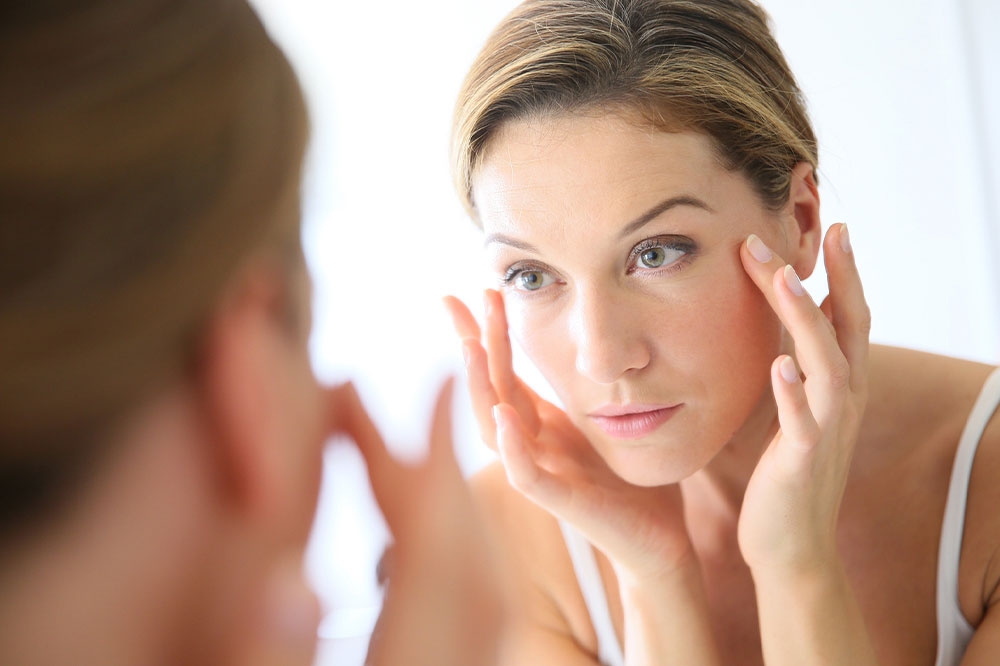4 signs of skin aging associated with high sugar intake

Sugar has been associated with issues affecting different parts of the body, like the teeth, eyes, and skin. Further, it can age the skin prematurely, and one may be able to observe changes in skin tone, texture, and glow. However, recognizing the signs of skin aging that have been linked to high sugar intake can make one reconsider lifestyle choices and food habits. Here are a few signs one may notice:
Wrinkles
When one indulges in sugary foods regularly, it can cause collagen damage. Collagen is a skin protein that helps maintain firm, elastic, and smooth skin. So, when the glucose levels in the body begin to increase, they can break down collagen and affect its production. This increases the risk of wrinkles and fine lines, which are some of the most common signs of aging.
Acne
Excessive intake of sugar can lead to a spike in the blood sugar levels in the body, leading to inflammation. Further, the spike can stimulate excess production of sebum—a natural oily substance that helps keep the skin hydrated. With excessive sebum on the skin, one is more prone to breakouts on the skin. Additionally, if one regularly chooses processed, junk, and dairy products, they could experience hormonal imbalances, which can trigger the onset of hormonal acne. So, healthcare professionals recommend making better nutritional choices and having foods like avocados, walnuts, broccoli, and tomatoes to improve skin health.
Pigmentation
Excessive sugar intake can increase the risk of Acanthosis Nigricans. Here, one may observe dark, velvety, and thick patches on the skin. In rare cases, the patches can either have an odor or cause itching in the affected area. Further, pigmentation can be triggered by oxidative stress. Melanin is a skin pigment that gives the skin its color or complexion. At times, due to excessive sugar intake, one can experience an increase in oxidative stress which makes melanin accumulate on the surface of the skin (or the epidermis), leading to hyperpigmentation.
Dry skin
Those with diabetes are likely to develop dry and itchy skin due to changes in the thickness of the blood when dealing with the condition. Due to high blood sugar levels, one may experience poor circulation, which means nutrient-rich blood is unable to reach all parts of the body. Additionally, to remove the excess sugar, the body initiates the process of pulling out fluids from the cells to allow the sugar to exit the body with urine. But this makes the cells dry up, making the skin take on an aged or dull appearance.
In addition to the direct impact of sugar on the skin, one may also experience constipation which can affect skin health. Foods rich in sugar do not contain enough fiber. So, the body is unable to break them down and digest them quickly, leading to an accumulation of toxins in the body. This can encourage inflammation, causing skin issues like acne and worsening skin conditions like eczema. So, one should avoid or limit foods with refined sugar, such as pastries and cookies. Further, one must keep track of their sugar intake and blood sugar levels. If one notices persistent skin-related symptoms, they must consult a doctor and seek treatment.





